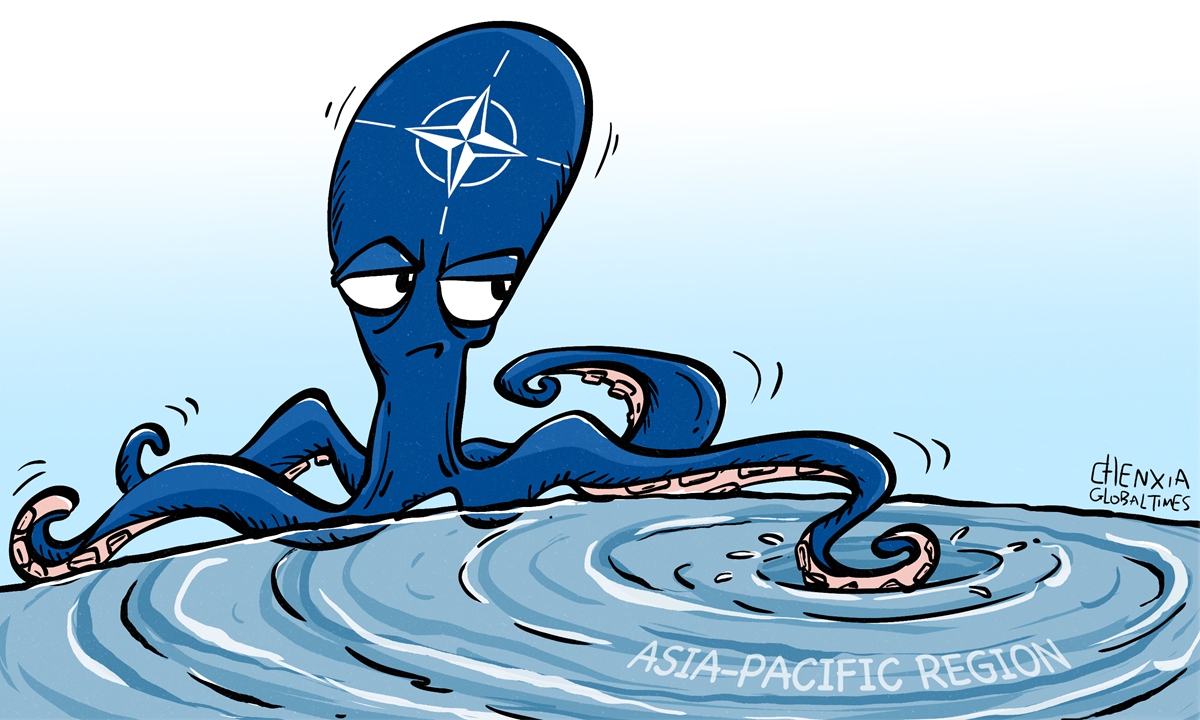
Illustration: Chen Xia/Global Times
These are peculiar and busy times in East Asia. Peculiar, because this part of the world has enjoyed relative peace and stability as normality for more than a few decades, with most countries in the region consciously refraining from engaging in protracted and costly wars with one another, unlike in some other parts of the world where long and debilitating wars, both cross-border and domestic, have become the order of the day.
With such peace and stability came an energy and focus on development, which then led to prosperity for most countries in the region. Indeed, since more than half a century ago, East Asia had clinched one economic miracle after another. Even during the heights of the coronavirus pandemic, East Asia still enjoyed some of the highest economic growth figures globally. But again, such spectacular achievements were fundamentally enabled by the peace and stability that have blessed the region. There could be no development but only destruction if war befalls one's doorsteps.
In recent years the two superpowers eyeing each other across the vast Pacific Ocean increasingly do not see eye to eye with one another. For many decades the US and China had enjoyed cordial and productive bilateral relations that brought about countless benefits for both sides. Theirs was the largest amount of trade volume in world history. Nevertheless, an increasingly bipartisan consensus was formed within American political elite circles that viewed a rising China as a malignant strategic competitor out to challenge the American global hegemony, a clear target to vigorously fight against, and not to assiduously work with as not so long ago. Never mind if it were the Republicans or the Democrats who control either the White House or the US Congress - they mostly treat China as a mortal enemy to defeat the sooner the better. Conversely, there also gradually emerged in China a view that sees the US as deliberating attempting to thwart China's rise to the world stage, a sort of containment which China must break free of in order to realize its national destiny.
And the result is the mounting confrontation - some would say deepening stalemate - between the two superpowers. The long-standing north-south face-off on the Korean Peninsula continues unabated, there are still the uneasy tensions across the Taiwan Straits, and the run-ins on South China Sea where various regional claimants overlap in their disputed jurisdictions.
These are also busy times for the region in terms of security matters, in just the last few months alone. With apparently tacit American acquiescence, Japan is in effect easing out of its post-WWII constitutional commitment to keep a minimal self-defense capacity, and sharply beefing up its military spending and capability, with a rising China in mind. South Korea, under a new conservative government and always vigilant about challenges from its northern neighbor, is enhancing its already significant defense cooperation with the US. Even the Philippines, although a treaty ally with the US who was ambivalent in its dealings with the US during its previous administration, is now expanding US military presence in the island country under a new administration. European military vessels, which hitherto seldom made their presence felt in the region, are now also making their high-key rounds here one after another. These are busy times indeed.
Against these peculiar and busy backgrounds, the secretary-general of the North Atlantic Treaty Organization (NATO), Jens von Stoltenberg, recently visited Japan and South Korea, ostensibly to call upon the two relatively prosperous East Asian nations to provide more military assistance to Ukraine in the latter's almost year-long war with Russia. But there were also calls and vows on closer cooperation between NATO and not only these two countries in particular, but also the other East Asian countries that are viewed as more closely aligned with the US and Europe in general. All these gave rise to speculations on whether NATO is about to spread its wing to East Asia, or if an East Asian version of NATO is taking shape in the region, with China as the target of encirclement.
While a NATO "extension" into the region is perhaps something unprecedented, a regional version of NATO is actually not a novel idea. Shortly after the formation of NATO in the middle of the last century, the US trained its attention to Asia, and instigated the formation of South East Asia Treaty Organization (SEATO) to contain the spread of communism in the region. With the end of the Vietnamese War and the gradual replacement by the more economically focused Association of South East Asian Nations (ASEAN), the security-oriented SEATO became essentially defunct. A "revival" of SEATO at this point in time would almost certainly take away the so-called centrality of ASEAN in regional security affairs. ASEAN's centrality as such rests on both its long-cherished neutrality in global and regional affairs as well as its often clever diversion of potential conflicts into aspirations for development. A more rigid "revived" SEATO would perhaps not harbor such neutrality and diverted aspirations when potential regional conflicts beckon.
Finally, a NATO expansion into the region would almost necessarily bring in not just American but also European actors into an East Asian theater, in addition to already quite formidable regional ones, should regional conflicts eventually erupt. These would then be even more peculiar and busier times ahead. Hopefully there could still be some space for much needed development.
The author is a senior fellow at the Singapore Institute of International Affairs. opinion@globaltimes.com.cn




